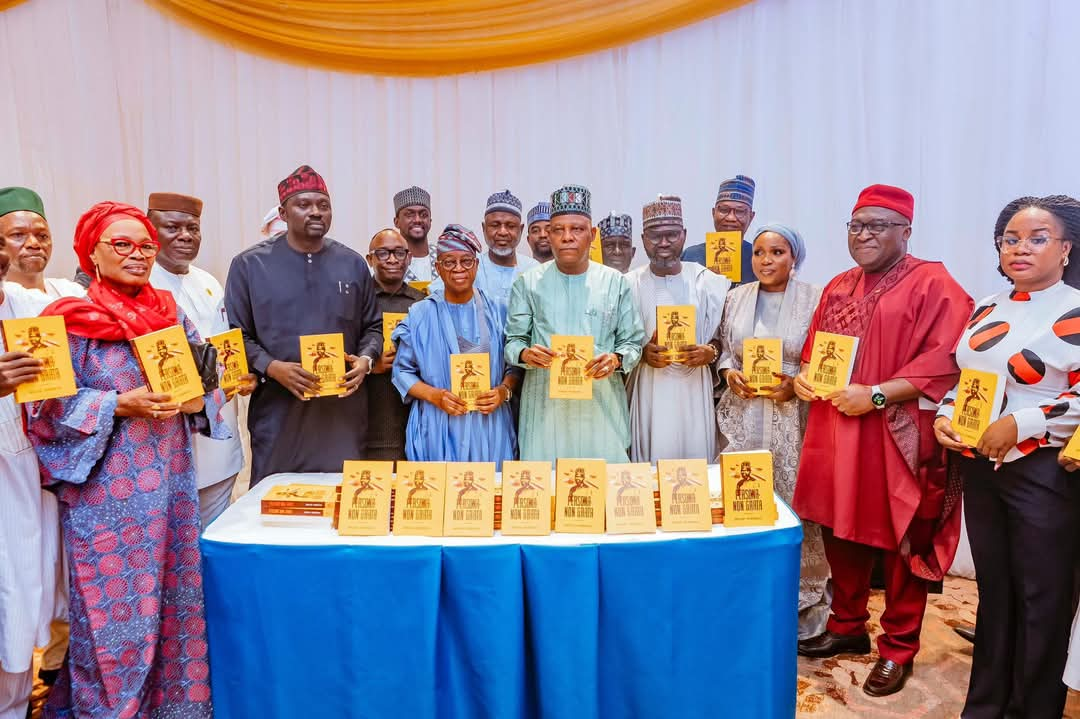
Dangerous Journalism
(A review of Ismail Omipidan’s ‘Persona non Grata’ by LASISI OLAGUNJU in Abuja on Saturday, 18 January, 2025).

Strange things happen all over the world. In the Autumn of 1946, Muna Lee, a poet who worked with the United States Department of State, wrote a journal article that questions the integrity of book reviewers. The title of his piece is: “Can’t Book Reviewers Be Honest?” In that piece are two gross cases, one of them a confession. The first is the case of a reviewer who did the review of a whole book from the blurb – that is, from
the book’s short description on the back cover. And, it turned out that even the writer of the blurb had never read what the book contained, and he was too dishonest to say so.
The second case is more scandalous. It is the confession made by one literary critic who wrote: “I have to confess that I once reviewed a book without having seen it. The editor was keen to have a review but could not obtain a copy, nor could I, so at last, on the strength of having read a score of books by the same author, I wrote a fairly long review, which apparently gave satisfaction.” It was that bad.

Both cases are not fiction. They happened some 80 years ago, the first in the United States, the second in Canada.
So, Your Excellencies, ladies and gentlemen, I want to solemnly affirm that I have read the book I am reviewing here today. I took time to fine-combed it from the front of the cover, the title page, table of contents, the copyright page, the initial chapters that deal with what Omipidan describes as his father’s “Undying Love” and his mum’s “Unfulfilled Wish.” I moved from there and dashed across the labyrinth of the remaining chapters – where the real actions are – then to a motley part he describes as Reflections, and finally to the back of the cover where we have a brief on the author, and the blurb.
Omipidan’s ‘Persona non Grata’ has 31 short chapters with the Foreword written by Farooq Kperogi, the author’s immediate boss when he had his very first journalism experience at the Weekly Trust newspaper some 25 years ago. A foreword is a short introduction to a book. But what the book has from Kperogi is more than a short introduction. I see it as a thorough review of not just the book, but an authoritative X-Ray of the author. And it is a positive testimony and testimonial to the person we’ve come to know today as Ismail Omipidan.
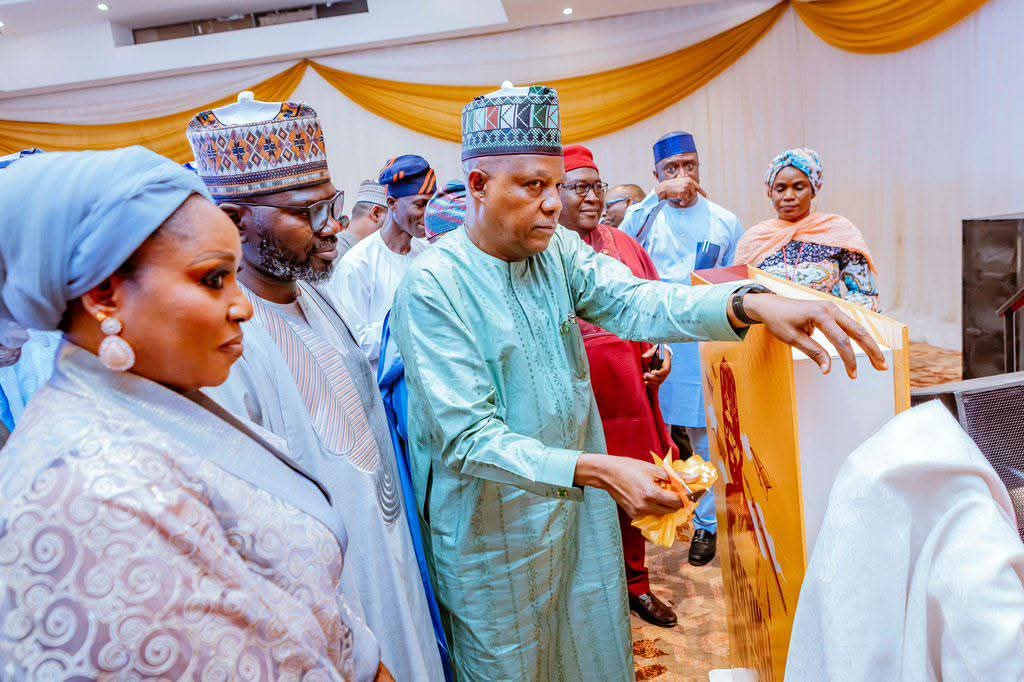
The 309-page story of Omipidan runs more than what Robert Frost calls “a course of lucky events.” We encounter the opposite of luck and lucky in almost all the early chapters of his story. On those pages are unhappy signature stories of the author’s many falls and failures.
Why did the author write this and the way he went about it? In other words, what are the themes? A theme is the central idea, the literary element that recurs and dominates a text. There is the theme of discrimination: class, religion and ethnicity. I see a theme on why politicians win elections and why they lose. But the bigger theme I see is the place of fate in human struggles; the victory of conviction over life’s conflictual challenges. For this book, the recurring element is survival despite life’s rapids and falls; the win after the race.
The book is structured in a way that makes readers read defeat in the early chapters, then sweet triumph in later chapters. In other words, the theme is the transformation of a persona non grata to a persona grata; the movement from being unwelcome, unacceptable and rejected to being acceptable and accepted in the same space. My late mother would hear this and summarize everything in one line: “asale ni ojaa ntooro”, the calm of the evening market; “a clarification of life” – Robert Frost again.
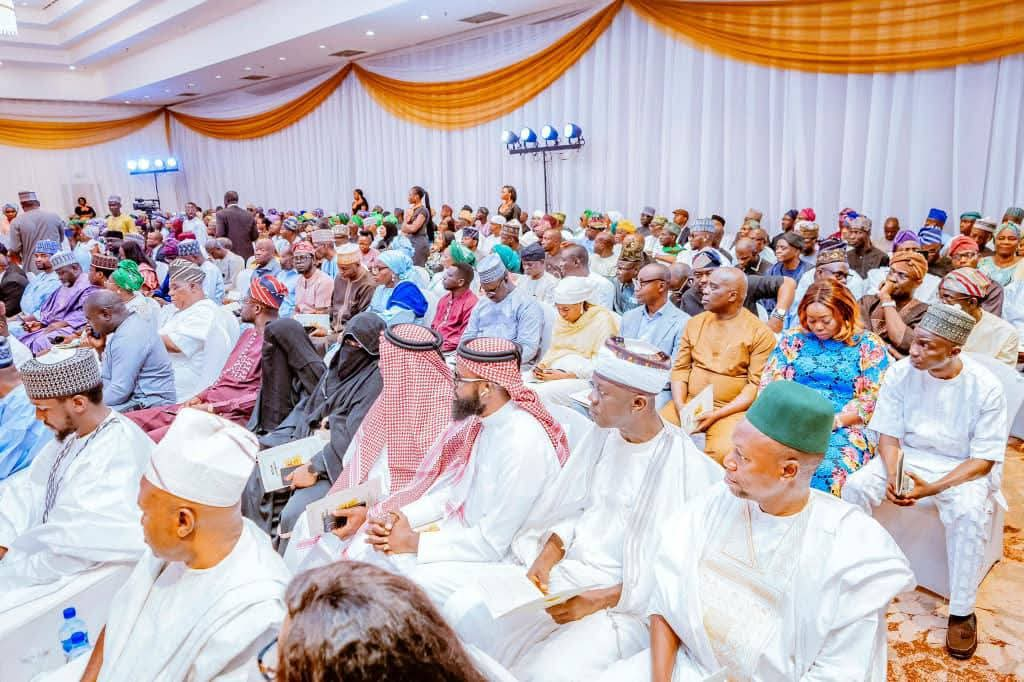
When a relatively young man writes a memoir, he is taking a huge, big risk. More importantly, politically exposed people are always very reluctant to write books about themselves – and, even about others. They are hesitant because they know that there are consequences for writing anything. There is this creation called Alagemo in Yoruba, the English man calls it Chameleon. We all know how big Chameleon is. Alagemo is asked why it walks so gingerly; it answers that it is afraid that the ground may cave in under its weight. I see Omipidan doing this, withholding names in some damaging aspects, not giving details in certain cases. But he, by and and large, exposed himself as someone who remembers everything and forgets nothing – except what he wants to forget.
A few minutes after I finished reading ‘Persona non Grata’, I spoke with the author – that was around 1 a.m on Thursday. I told him that with what I read in the book, I could make some predictions: He will lose a few friends; his other friends are likely to be more committed to their friendship with him while his enemies will certainly dig in and possibly draw new battle lines.
Now, some technical observations: Written in simple, everyday English language, Persona non Grata’s style is lucid and breezy. The plot structure is linear with the author unfolding himself and his life journey gradually in a chronological and sequential order. Originally from Ila Orangun in Osun State, Omipidan’s plane took off in a family where love and amity reigned in Otukpo, Benue State. Then the story subject took tentative steps out of the family and the Otukpo community where he encountered dawn. He finished his secondary education in 1992 in Benue State but failed his final exams – he did not pass that exam until 1995. That unpleasant experience appears to have fired and toughened his iron.
His long walk to freedom took him out of that corner of the country (Otukpo); he fanned out to Ibadan, he was soon back to Otukpo, then to Kano, then to Lagos, back to Kano, to Maiduguri, to Abuja, to Kaduna, back to Abuja, then back to where his ancestors belonged – Osun State.
Encased in his development of the theme of victory over failure is his story of unfair rejection and harassment by teachers in school, by bosses at work and by those who thought they held the yam and the knife of his life. There are southerners who still believe that Omipidan is more northern than the jaki of Kano. Such persons should read his story, particularly the chapter on page 19 which he gives the title: ‘North South Dichotomy.’ There are some other parts of the book that reek of harassment and rejection anchored on tribalism, sectionalism and nepotism.
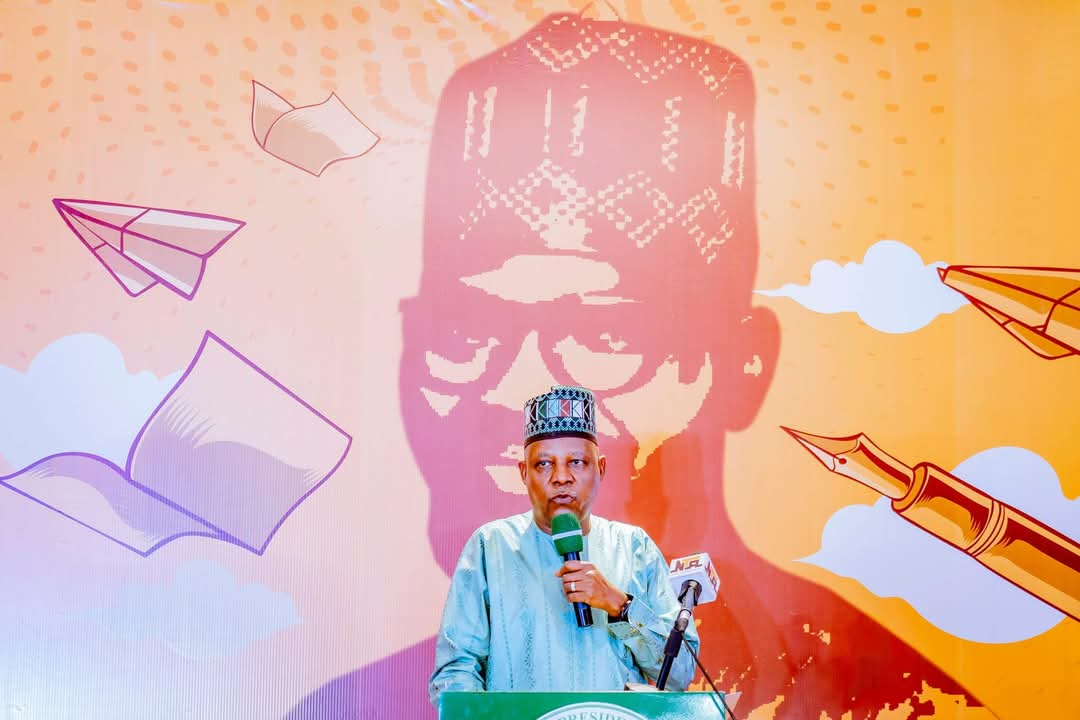
Ismail was discriminated against in the north, he was insulted and harassed in the South for being a ‘northerner’. He applied for internship at The Punch in 1998, his application was successful but he soon found out the meaning of blood being thicker than water. He says that the head of admin of that newspaper house gave his place to someone else who was close to her. Ismail said he wasted no time before complaining in writing to the then Managing Director, Mr Ademola Osinubi, who asked the editor, Mr. Gbemiga Ogunleye, to right the wrong for him; and it was done. The day he assumed duties, the admin woman looked at him and said “you have not started work, you are already writing petition” (see page 20-21). But his ordeal was not over. He got to the newsroom, the newseditor looked at his letter and said, “Awon omọ Málà yi, kí ni wọn kộ won? (these children from the north, what did they teach them?)” The man then sent him to the foreign desk (page 23). If you are familiar with the ecology of the newsroom, you would know that what we call the Foreign Desk is the Siberia of newspaper journalism in Nigeria. Daily Trust was Ismail’s first place of work after he got his National Diploma in Mass Communication. He wrote that he was engaged as a stringer. He believed he was denied a full staffer place there because of his ethnicity. He quotes the oga patapata of that place in support of his suspicion. Read his account on page 33 to 37; particularly page 37.
Ismail wanted to read Mass Communication at the Ahmadu Bello University, Zaria in 1999, but he was told by a lecturer that the school also ran a diploma programme and so he could not come with a Kaduna Polytechnic diploma and think he would get admission. The author says “that was how I lost the admission that year” (page 44).
The following year (2000), he tried Bayero University, Kano. He met the admission officer of the department who deliberately spoke to him in Hausa, a language he didn’t understand that time. Then the man told him in English what nuanced persons should never say to anyone’s hearing. Ismail is worth quoting here: “I never knew he was talking to me. He now beckoned on me and said ‘are you not Ismail, the owner of these documents’ (showing me the papers I gave to him). I told him I was the one. He said, ‘you are a Muslim and you don’t understand Hausa.’ He threw my papers at me and walked me out of his office, saying, ‘if you can’t speak Hausa, you’re not fit for BUK.’ That was how I lost the BUK admission also” (page 44-45).
There are several instances of such crass apartheid in this story of a man whose name changes with beats and seasons. To the incumbent Vice President, he is Mallam Samaila – you will read that in multiple places in the book); he was “Wale Omipidan” to the Daily Trust/Weekly Trust which needed him for ethnic balancing and as key to certain southern news sources. Of course, to many of us who met him after his storms and turbulence, he is Ismail Omipidan, the Yoruba boy from the north. Interrogating each of those names is very helpful in understanding the persona that we see speaking in the book.
Ismail practised dangerous journalism. Colleagues who are privy to his intrusive engagements with Boko Haram in Borno and the OPC in Lagos will find his words on these two phenomena engaging.
The book carries the title: Persona Non Grata. So, how did the author arrive at that? That is one information every book reviewer should be interested in before interrogating the text. I did that and discovered that a governor in a north eastern state pronounced that fatwa on this reporter because the newsman gave him no breathing space. Where I come from is where Ismail comes from. We say there that the king does not kill the bard. But the author wrote that this governor (of Borno State) one scary day in 2005 told his editors who were in Borno on a peace mission that he could not promise that Reporter Ismail Omipidan, the bard giving him headache would be safe again. The story is sweeter in the mouth of the story owner, so, let me quote the author: “He (the governor) said he knew the opposition was not giving me anything and he was willing to take care of me, but I refused to be on his side and that his people were already complaining and he did not want a situation where his supporters would hurt me. He declared he could no longer guarantee my security and safety in the state. He also told them that any day he woke up to see me, the day was spoilt…” (page 64). A Persona non Grata is an unacceptable or unwelcome person. The direct English translation of that Latin phrase is “person not welcome.” That exactly is what the governor pronounced on the reporter. It is an eerie moment to imagine.
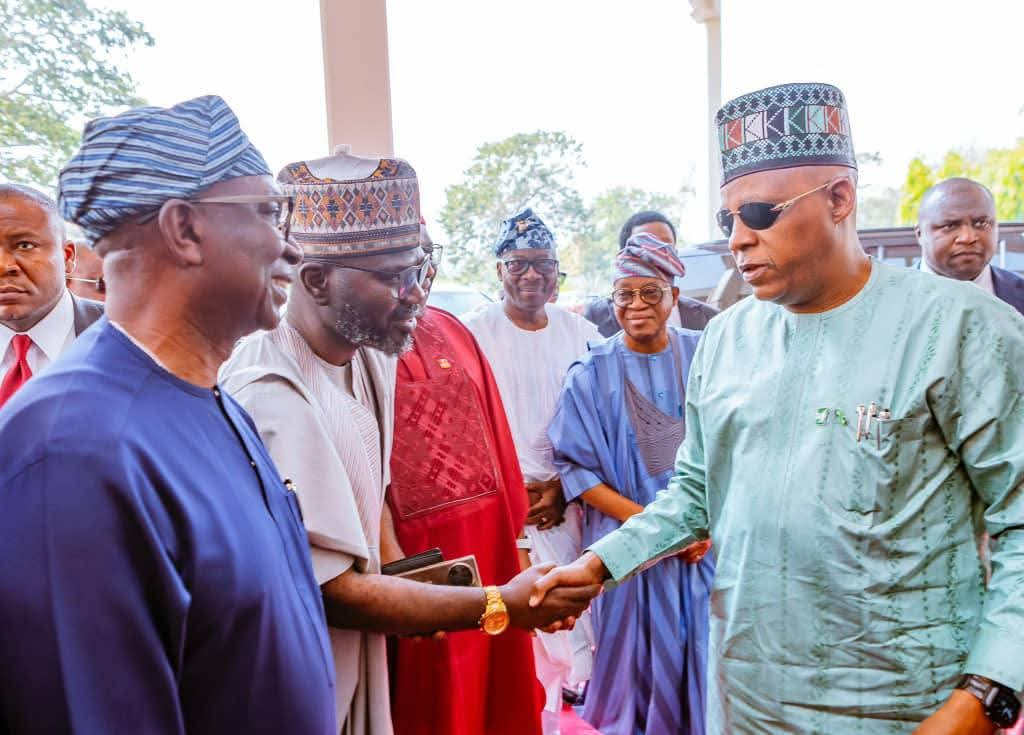
Subsequent chapters after that verdict of the powerful expose the author as a journalist in power and politics. That is someone who said he almost joined the army but for the death of his would-be helper, General Hassan Katsina. I wonder how far he would have gone in that career and how safe democracy would have been in his hands. If you wonder why I say this, read his words in the chapter he headlined ‘Early Inspirations and Aspirations’ on pages 13 and 14.
You will find as very interesting the reporter’s perspectives on how and why President Goodluck Jonathan lost the 2015 presidential election; why the PDP has never won the governorship of Borno State and why it may never win. The book has very many pages of insights into the very difficult Osun State governorship election of 2022, the factors that drove the election, the litigation that followed the result, the BVAS controversy and other controversial moments around that period.
The chapters on his professional life are laced with encounters with politicians and principalities. At the level of structure, out of the 309 pages, I count about 124 pages (page 111 – 235) devoted to his experience in Osun politics. He, understandably, has many nice words for his boss, Ex Governor Gboyega Oyetola. Understandably too, his pen etched in that part of the book scathing remarks on people who are on the other side of Oyetola’s politics. He has more than one chapter on Alhaji Kashim Shettima, the current Vice President of Nigeria. In those chapters, he tells the story of Shettima, a man who has always been his own man and who would not inherit a governor’s enemy even while serving as a commissioner under that governor. The author tells how Shettima owned him, protected him and clothed his vulnerability at that moment he was declared unsafe by the chief security officer of Borno State. He writes more on Shettima. He uses his chapter on Boko Haram (page 243 – 252) to reply those who ask questions on Shettima’s tenure as governor of Borno State vis a vis the ascendancy of Boko Haram as a terror organization. He recalls the many gallant efforts of Governor Shettima which saw him fighting “the monsters to a standstill.”
Now, I have bored you retelling what has been eloquently told in the book. I will soon be done. But I will not be properly done without saying that no one came into this world without a blemish. The book has some blights, I spotted some mistakes.
See, I have chosen to call it the book of battles. It is well printed and illustrated with relevant and beautiful photographs. But I saw a few errors there which should not have been in this elegant work. I saw the name “Simeon Kolawole” on page 49 (instead of Simon Kolawole). There is also “Sufian Ojeifo” on page 71 (instead of Sufuyan Ojeifo). These are well established names in the Nigerian media. If the author inadvertently missed their spellings, the publishers shouldn’t have.
Conclusion
I suggested at the beginning of this review that the objective of the author appeared to be a demonstration and celebration of his triumph over rejection. I think he achieved that across the space he allocated to himself. He wrote exams and failed; repeated classes, wrote exams again and again and eventually passed. He sought admission to schools and was rejected, many and repeated times, but he eventually got what he wanted. He started work and faced rejection and discrimination north and south. But every place and space that rejected him eventually cuddled him. He is a success because he struggled to rise each time he fell. A Yoruba incantation best explains his doggedness- and luck: “ibi ti won ba ni ki gbebe ma gbe, ibe nii gbe. Ibi ti won ba ni ki tete ma te, ibe nii te.” I am bush enough to know the magical leaf called gbegbe; I am quite familiar with the medicinal vegetable called tete but, because of the consequences of mistranslation of those words of awon agba, I pass the task of translation of that incantation to the elders hearing me here, and to those who may read me after this session.
By and large, Ismail Omipidan’s ‘Persona non Grata’ is a successful tour de force on the politics of fate and power, subterfuge and the busybody called the media. It offers a challenge to the many big men, and small men who will feel offended by the content to write their own story. I congratulate the author. The book is a worthy addition to works on media and politics; the intrigues of national political engagements and, very importantly, the deep involvement of journalists in shaping politics and its discourses. I recommend it to all who desire answers to our perennially unanswered national question.
Your Excellencies, ladies and gentlemen, I thank you all for listening.
Lasisi Olagunju, PhD.
Abuja,
18 January, 2025.







